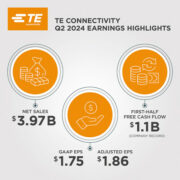The electronics sector is one of the most rapid growing industries globally. With annual consumer electronics sales expected to reach $2.9 trillion by 2020, the market isn’t predicted to slow down anytime soon. Being twenty years old, I am constantly interacting with electronics on regular basis as part of my daily routine, whether I realise it or not. Without todays electronics, my lifestyle would be nearly impossible to keep up with as I have incorporated it through convenience and habit. For many people, the advanced electronics we have nowadays is beneficial and makes their lives much simpler and less stressful. Being a 20-year-old female, I see the negative and positive impacts it’s causing in our society, especially the younger generations.
Let’s start with social media – if you don’t know already, social media is a mixture of websites and applications that enable users share content and participate in social networking. In a simpler description, it is a form of electronic communication. Social media has become a huge part of our lives within the last few years thanks to advanced electronics and technology.
Generation Z is the youngest, most ethnically diverse, and largest generation in history, making up over 27% of the US population alone. Pew Research Centre recently labelled Gen Z as anyone born after 1997. Gen Z grew up with technology, the internet, and social media, which sometimes causes them to be stereotyped as tech-addicted and anti-social. According to Hootsuite, digital consumers spend nearly 2.5 hours on social networks and social messaging every day. As the younger generation growing up with communication being mainly digital, they may lack in social skills due to depending on social media to communicate. However, Eternity says that millennials spend 85% of their day on mobile devices. This can be damaging for the Gen Z and Millennials because they become adapted to not actively seeking human interaction. According to Independent, Instagram became the top platform for teenagers in Fall 2018, when its surpassed Snapchat for the first time: 72% of U.S. teens now use Instagram. Social media channels such as Instagram play a huge part in peoples mental health, especially the younger generation. Many young males and females compare themselves to the people we see on Instagram which creates an unrealistic body image. According to The Guardian, a study was based on interviews with almost 11,000 14-year-olds who are taking part in the Millennium Cohort Study, a major research project into children’s lives. The study found that many girls spend far more time using social media than boys, and that they are much more likely to display signs of depression linked to their interaction on platforms such as Instagram, WhatsApp and Facebook. Don’t get me wrong I love social media. I have an account for almost every major social media platform and use them daily. However, from my personal experience, I see the negative effect it has on my generation as well as the younger generation.
On the other hand, I think that social media has made the younger generations more digitally connected in a positive way. It is easier for the younger generation to access news and information as they know how and where to access it. American Press Institute found that Millennials get their news online with 88% through Facebook, 36% through Pinterest, 33% through Twitter, 23% through Reddit, and 21% through Tumblr. The younger generation growing up with social media means they can all contact each other from around the world and have a connected childhood.
Electronics are becoming more advanced every single day – from the latest phones, cars, electronic wearables to security systems. On the subject of automotive, I have noticed more cars have increasingly advanced technology such as parking sensors, stop-start engines, blind spot alert and 360-degree camera systems. Many younger generations who have recently started driving have an advantage for learning to drive due to advanced technologies. For example, the younger generations have access to helpful drive assists such as parking sensors which were not around until the early 2000s. The first mainstream car to feature the parking sensors was the Toyota Prius, released in 2003. As helpful as this is for drivers, I think it causes a negative effect on the younger generations as they may have adapted to using parking sensors. If a young generation driver was to for any reason purchase a car without parking sensors, they may really struggle without the help of technology to guide them.
On the other hand, in my opinion I think that the advanced technology we have nowadays is beneficial for the younger generation as they can adapt to activities more efficiently whereas if they didn’t have access to the electronics. For example, the younger generations have access to electronic products such as calculators which makes calculations quick and accurate. Calculators were invented in the 1930’s and therefore older generations would have had to manually solve calculations. Millennials and the generations Z have grown up around electronics. Given any instances I feel most of them would know how to use electronics such as advanced computers, phones and cars naturally. This can be beneficial for applying for jobs as they have experience with electronics and are tech savvy.
The industry experts have their say:
“65% of children entering primary school today will end up in jobs that currently don’t exist, so teaching skills to prepare them, including computational thinking, is key for their future. Micro:bit, exclusively manufactured and distributed by Farnell, is helping schools develop these skills, whilst enabling students become creators, rather than users of technology, and opening a world of possibility.”
Lee Turner, Global Head of Semiconductors and SBC at Premier Farnell
“I don’t think there is a lack of social skills within the millennial and younger generations but more so a change in the very way social skills are defined” and continues “Social media is in effect just digital social skills, one’s ability to be heard on social platforms is directly affected by their skill level. These social skills are essential for communication, marketing targeted towards under 30’s has to be able to appeal on a multitude of media channels.”
Thomas Smart, Editorial Assistant at Electronic Sourcing
“The increasing trend in open-source hardware and software tool chains coupled with the sheer power of today’s microcontrollers is making the design of digital electronics systems much more accessible to those with an idea and the motivation to create a product. Fortunately, today’s engineers would rather place a power module on their board than design their own.”
Justin Hill, Regional Sales Manager-West at RECOM
The fast-paced electronics industry is producing technology that is helping to improve and increase efficiency amongst younger generations. It’s continuing to revolutionise the way people study, collect information and communicate. Particularly among young people, you could argue it has had a negative effect on the level of human interaction as opposed to virtual; however, the overall affect across society of a fast-paced electronics industry is that technology is being introduced to create an easier, greener society.
Jack pollard, Business Development Manager at The Electronic Component Show
Overall, I think the advances that we are seeing in today’s electronic industry are providing the younger generation with tools that both improve lifestyles and inspire from a young age. On the edge of another industrial revolution, it’s easy to see positives for manufacturing and production, but also the improvements this will bring to future generations.
Lewis Letchford, Marketing Technical Adviser for CamdenBoss
“Social media is a staple amongst the younger generation. They are developing their digital social skill set organically, which will prove invaluable as they enter the work force or start a business, as digital communication will continue to dominate commerce related interaction.”
Jason Silva, Programming Manager and Webmaster – Dove Electronic Components, Inc.
Overall, I think that the advanced electronics we have today is portraying a negative effect on the younger generation as they are tech dependant. They have grown up in an artificial world. They’ve grown up knowing no different to navigating smartphones, playing on Ipads and using tech to guide them through life. On the other hand, I also think the advanced electronics we have today has beneficial factors to the younger generations and they are more tech savvy and connected which is beneficial for job opportunities and meeting people. According to Pew Research Centre, more than nine-in-ten Millennials (93% of those who turn ages 23 to 38 this year) own smartphones, compared with 90% of Gen Xers (those ages 39 to 54 this year). This shows that a digitally connected world is becoming more important to the younger generations and I believe it will for many generations to come. The advanced electronics we have nowadays is keeping the world a connected place and globally interactive!
By Amy Leary, Marketing Manager of eBOM.com










